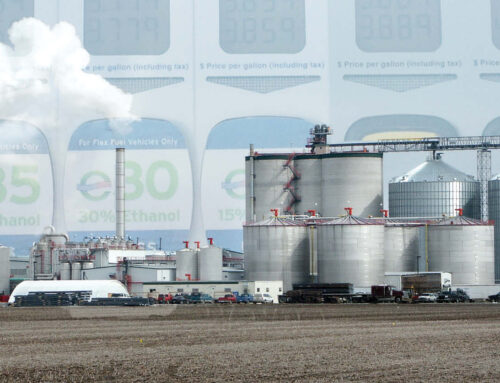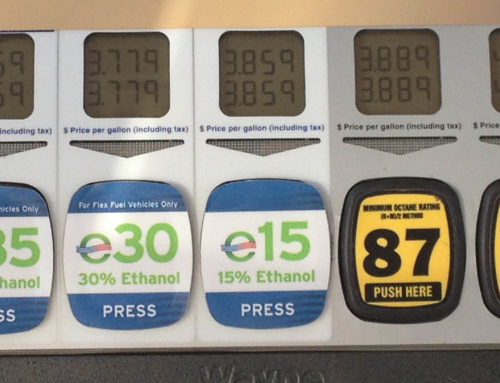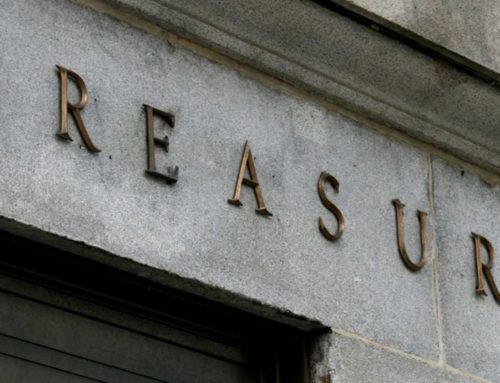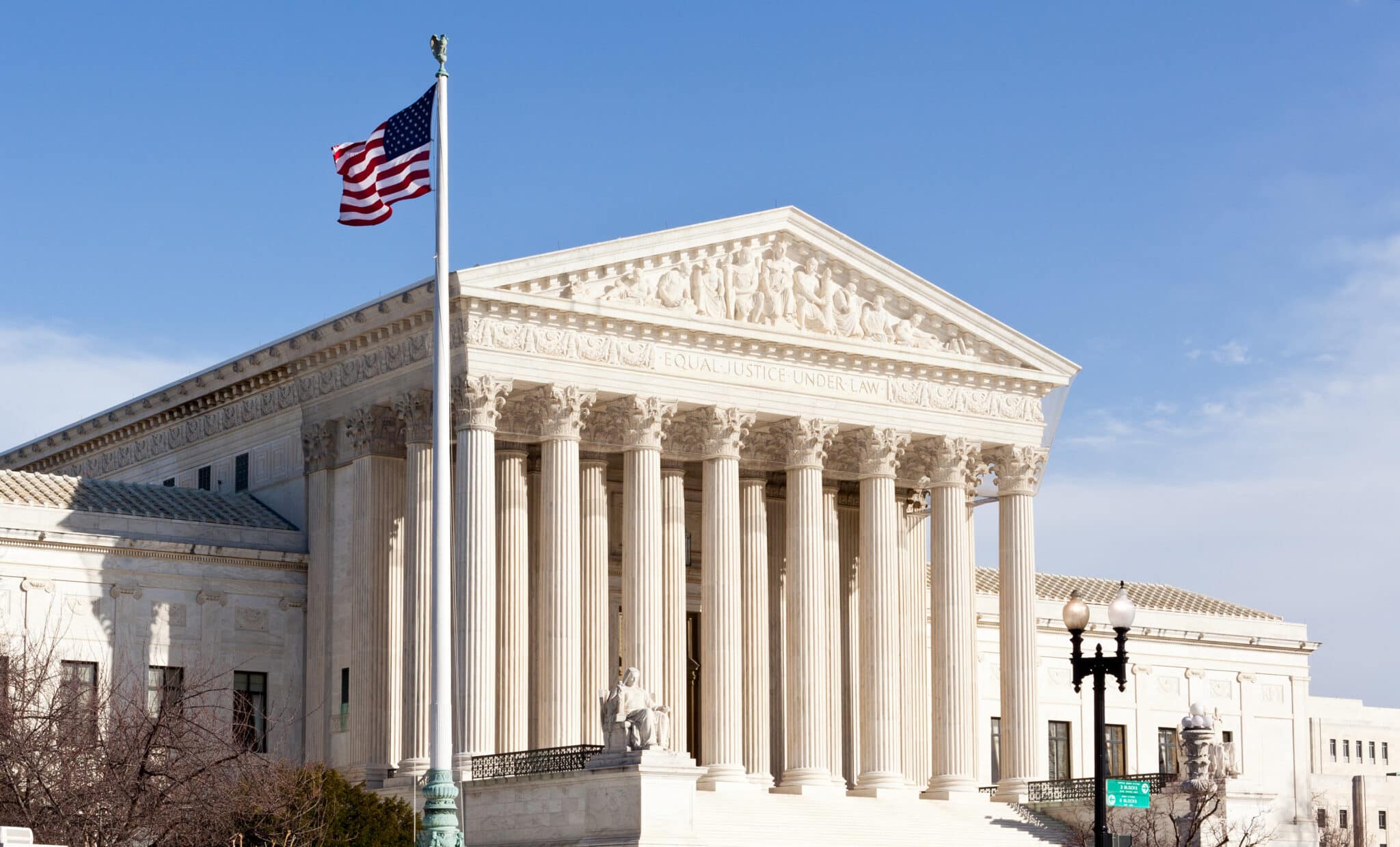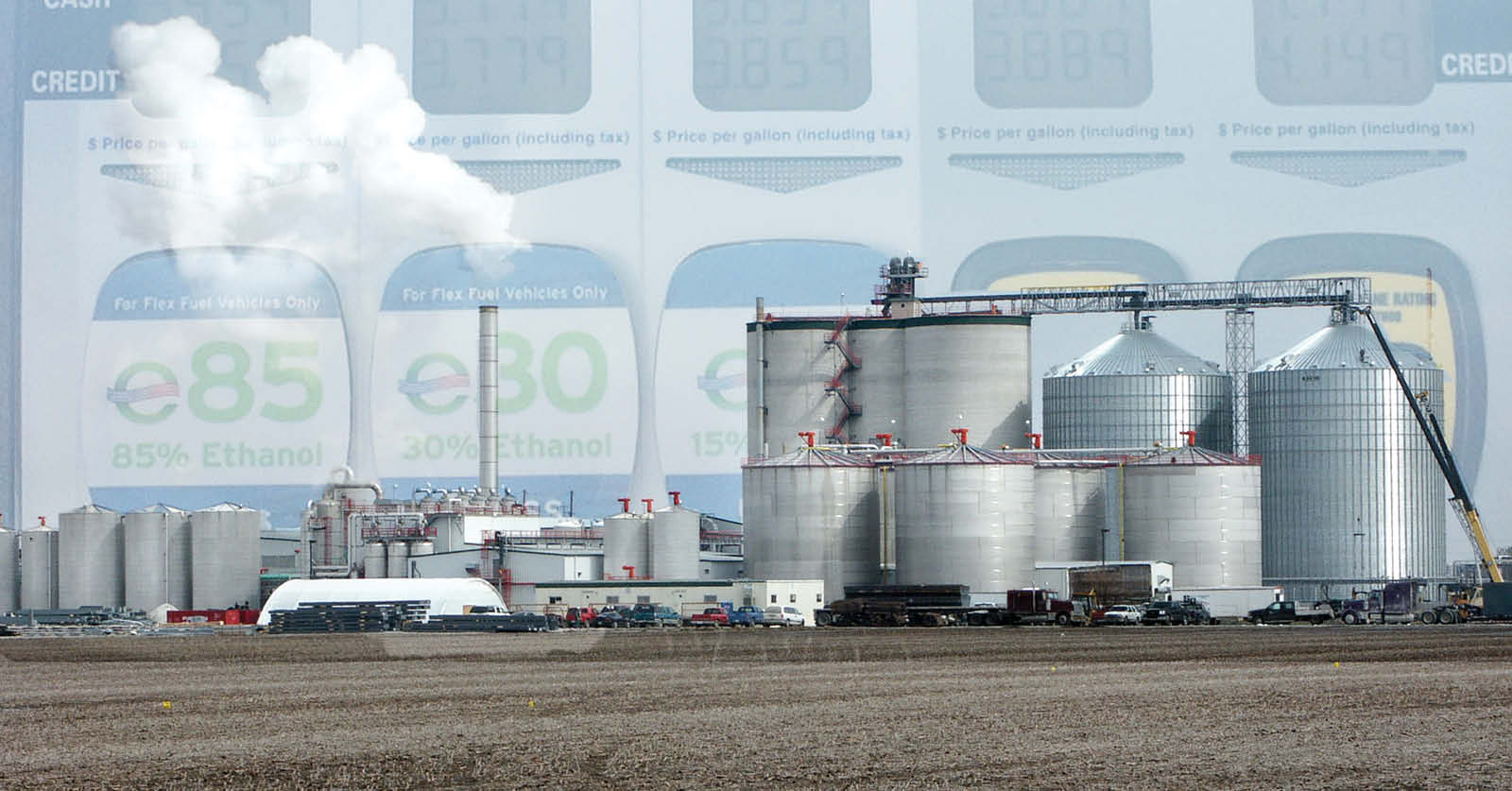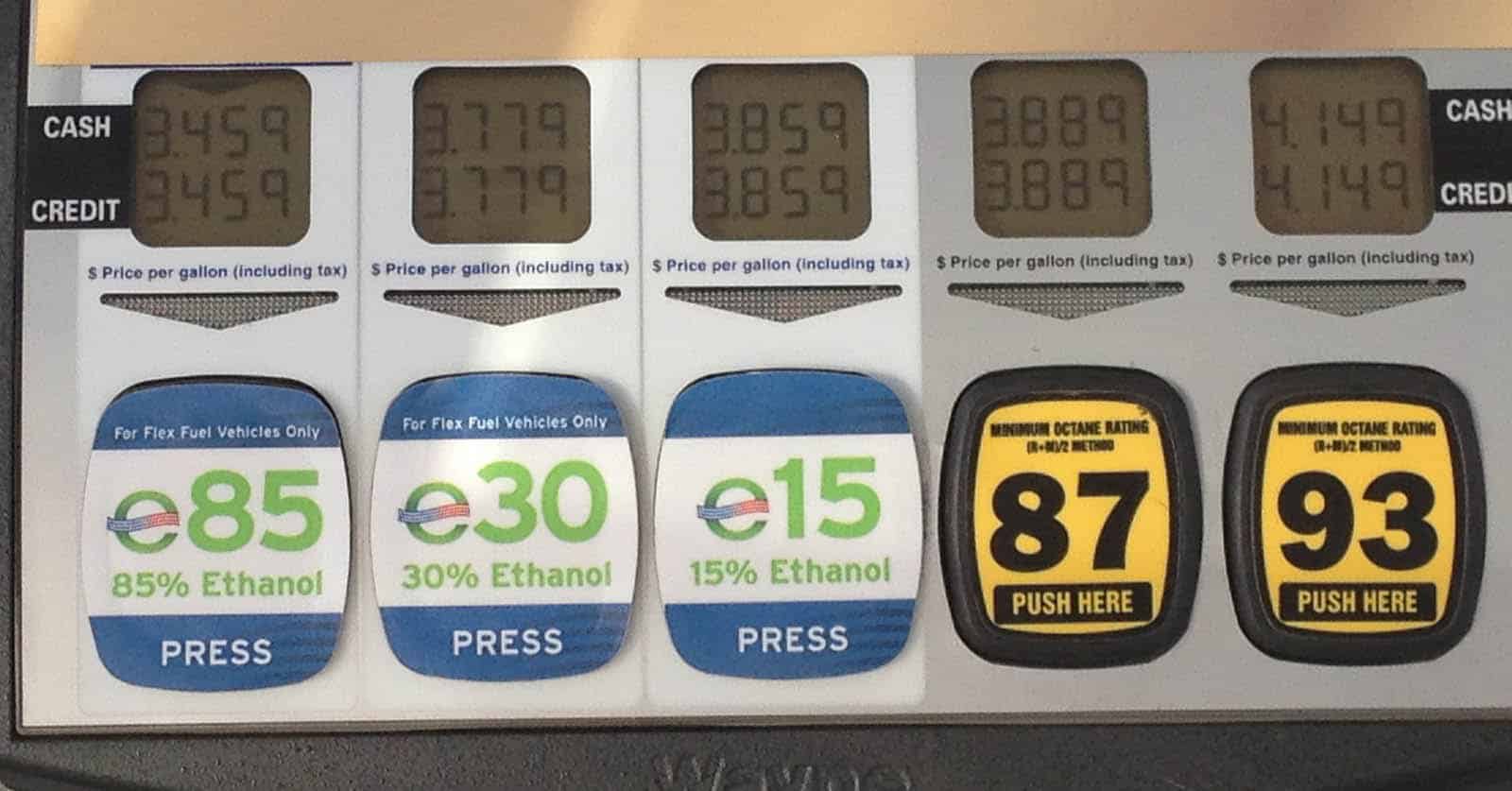The EPA’s delay of methane waste standards will cost taxpayers $170 million as billions of cubic feet of natural gas escape into the atmosphere instead of reaching markets. Host Steve Ellis explores this fiscal and health crisis with TCS Vice President Autumn Hanna, Center for Methane Emission Solutions’ Isaac Brown, and Evangelical Environmental Network’s Rev. Dr. Jessica Moerman. From lost royalty revenues to public health impacts, discover why methane waste prevention isn’t just environmental policy—it’s smart fiscal stewardship.
Transcript
Announcer:
Welcome to Budget Watchdog All Federal, the podcast dedicated to making sense of the budget spending and tax issues facing the nation. Cut through the partisan rhetoric and talking points for the facts about what’s being talked about, bandied about and pushed to Washington, brought to you by taxpayers for common sense. And now the host of Budget Watchdog AF TCS President Steve Ellis.
Steve Ellis:
Welcome to All American Taxpayers Seeking Common Sense. You’ve made it to the right place for 30 years. TCS that’s taxpayers for common sense, has served as an independent nonpartisan budget watchdog group based in Washington dc We believe in fiscal policy for America that is based on facts. We believe in transparency and accountability because no matter where you are in the political spectrum, no one wants to see their tax dollars wasted. And yet today as we come on the air with episode 97 of Budget Watchdog All Federal, we’re talking about a problem that’s literally going up in smoke, billions of dollars worth of natural gas that could be powering American homes, generating taxpayer revenue and strengthening our energy security. Instead, it’s being vented, flared, and leaked into the atmosphere. Just last week, the EPA announced that it would delay critical methane waste standards, a move that will allow millions more tons of this valuable resource to escape into the air. Today we’re diving deep into the methane waste crisis with three experts who understand both the fiscal and human costs of these delays. Joining me are Autumn Hanna, TCS, vice President and TC S’s, leading voice on methane waste. Isaac Brown, executive director of the Center for Methane Emission Solutions, and Reverend Dr. Jessica Mormon, president and CEO of the Evangelical Environmental Network. Welcome to the podcast all.
Jessica Moerman:
Thanks Steve. Looking forward to it.
Isaac Brown:
Thank You, Steve. Great to be here.
Steve Ellis:
Autumn, let’s start with you. TCS has been tracking methane waste for years. What’s happening right now that should concern taxpayers? Well, Steve,
Autumn Hanna:
We’re facing the perfect storm of government sanctioned waste. The EPA just announced their lace to the methane standards they were supposed to prevent. Exactly the kind of methane waste we’ve been talking about for years. Between 2012 and 2021, operated on federal lands alone, wasted 300 billion cubic feet of natural gas. That’s nearly a billion dollars worth of taxpayer owned resources that went up in smoke instead of going to market.
Steve Ellis:
That’s staggering. And so what is making this delay even worse?
Autumn Hanna:
It’s even worse because the EPAs own analysis shows that these delays will allow 3.8 million tons of methane worth an estimated $170 million to be released. All of that could have been captured. Every ton that escapes is money literally going up in smoke plus lost royalty revenues that should have gone to federal and state taxpayers. And it’s important to note these guidelines are common sense and in our opinion, quite modest. The rule required companies to routinely monitor for leaks and sets a 60 day timeline for repairs. It tightens rules for when facilities can vent in flare natural gas with stricter guidelines for future wells and plenty of exemptions for existing ones, and also created a new program allowing third parties to report and stop super emitter events.
Steve Ellis:
So autumn, wait, let’s back up. Can you explain a little bit about what is methane waste?
Autumn Hanna:
So the oil and gas industry waste methane, which is the primary component of natural gas through venting, which is the intentional release of natural gas from equipment into the atmosphere, flaring, which is the burning of it, and leakage, which is unintentional release gas due to improperly sealed equipment. Most venting and flaring occurs when operators rush to develop oil before setting up proper infrastructure to capture commingled natural gas. It can be economically captured and that’s why we’re disappointed to see efforts to stop this waste delayed.
Steve Ellis:
Isaac, let’s bring you in on this. Your organization represents methane mitigation technology companies. How are you seeing this delay?
Isaac Brown:
Yeah, thank you again, Steve for the question and the opportunity to join you today. I think Autumn really touched upon the fact that this is really a misguided and performative measure by this administration. The country has been debating methane policy in a substantive way at both the state and federal levels now for well over a decade. And what we have seen both in red and blue states and at the national level is that sensible regulation of methane is truly a win-win. I’m not an expert on the public health ramifications, but certainly the data is very clear that methane emissions endanger the health of local communities. There’s also the significant climate impacts associated with methane. But then if you just purely look at this through a dollars and cents perspective and what’s best for the economy, what’s best for growing jobs, the decision that the Trump administration made last week is simply going to harm American businesses.
Isaac Brown:
Essentially what they did was they inserted a tremendous amount of uncertainty into a growing industry that really more than anything just needs to understand what the rules are so that they can help their oil and gas producer partners comply and continue to grow their business. Essentially what the administration did by delaying implementation was put a black cloud over operators across the country and left them wondering, okay, we don’t know what the rules are today. We don’t know what it’s going to be a month from now, a year from now. And essentially what that does is that stalls investment altogether. And so not only does it eliminate good paying jobs for companies that I work with and represent, but also for oil and gas producers, if they’re thinking about making an investment in a new project somewhere in the southwest, they’re going to have to say to themselves, well, we really got to hold off on this investment until we really know what the Trump administration is thinking. And so I think in every respect this is a misguided decision. Certainly our members are hoping that through continued outreach and communication and through the leadership of organizations like yours, that we can help them understand that sensible policy really is the smart policy and what’s best for business and the economy.
Steve Ellis:
Well, and certainly it seems like whether you’re talking about tariffs or you’re talking about methane waste policy, businesses need predictability to make investments, to make decisions. They need to actually have that predictability and know that the rules are not going to be shifting sands underneath their feet.
Isaac Brown:
That’s a great analogy. I was actually thinking about the tariff example myself. That is a great comparison to the uncertainty that we now see in our sector. I hear from a lot of our partners that are making manufacturing decisions that what the delays the tariff policy had done is essentially force folks to wait out the administration. And I worry that it’s going to have the same impact on jobs across the country as a result of the oil and gas industry.
Autumn Hanna:
And I think that’s, just to jump in there too for a second, Steve, I mean the points that Isaac is making about these, this is such an economic issue and jobs, and so this industry uncertainty. And I think you often hear about methane only being talked about in the context of climate or emissions impacts, but you’re talking about jobs and certainty in an industry and real economic issue. And then this issue of fiscal responsibility with all of this wasted resource that we all own, not getting to market and then creating all these liabilities down the road.
Steve Ellis:
Alright, Jessica, let’s bring you in here to give yours perspective. You represent evangelical Christians who supported the original methane standards. So what’s your take on these delays and the issue of methane waste more generally?
Jessica Moerman:
Absolutely. For us as evangelicals, why do we care about methane waste? Well, one, it comes from our biblical mandates, a biblical mandate to steward God’s resources well, but also a mandate to defend life and recognizing the dignity of all human life. And so for us, especially as we come to these delays, we’re looking at the human impact of that methane emissions not only release harmful greenhouse gases, but also toxic pollution. And this pollution is associated with poor birth outcomes, exacerbating asthma even linked to increased rates of dementia. And so for us, a delay means more exposure that could be prevented. That means if we prevent that exposure, we’re preventing harmful illness and even death.
Steve Ellis:
So I mean it really is a lot more than just fiscal policy or business policies. I mean, we’re talking about real human impacts of this methane waste as well. Autumn, let’s dig into the numbers. What are taxpayers actually losing here?
Autumn Hanna:
So as we just heard from Jessica and Isaac, there’s a lot of impact from this waste and the scale is enormous. And that’s one thing I think we have to keep in mind, economic impact on jobs. And then we’re also having these public health consequences that we’re facing now and into the future. And that’s creating costs for taxpayers. And to give you some idea, just on federal lands alone, 300 billion cubic feet of wasted gas was lost between 2012 and 2021. That could have powered 3.2 million households for a year. And at the 12.5% royalty rate taxpayers would’ve received $190 million in royalties alone. Instead, we collected only 43 million just a third of what we should have gotten. And we know that common sense methane waste prevention policies work states with stricter rules, collect more royalties. New Mexico collected 4.4 times more revenue than North Dakota on methane waste, even though North Dakota reported more total waste. The difference. New Mexico has clearer rules about when operators have to pay on royalties and wasted gas, and that leads to more revenue.
Steve Ellis:
So we’re getting shortchanged on multiple levels here.
Autumn Hanna:
That’s right. We’re not getting the gas to consumers, we’re not getting fair royalty payments. And as Jessica described, we’re creating future liabilities with these public health costs.
Steve Ellis:
So what needs to happen next?
Autumn Hanna:
So in addition to the implementation of the EPA Methane rule, Congress also delayed implementation of a waste emissions charge on methane emitted above a certain threshold. So we’re talking about the worst actors, operators who are wasting the most gas this year was projected to generate 7.2 billion over the next decade. While we’re doing that stick approach, we also had a carrot. We provided billions in financial incentives to industry to reduce methane waste. It was called the Methane Emissions Reduction Program. It appropriated 1.5 billion in the IRA, the Inflation Reduction Act in 2022. And much of that has already been awarded and that can’t be rescinded. And so now taking away this methane fee and taking the consequences to these worst actors is just carrying financial consequences for taxpayers.
Isaac Brown:
And I think also there’s another aspect to this discussion that needs to be raised. A big part of the one big beautiful bill and its impact is by reducing incentives for renewable energy. Essentially what the Congress and the administration did was take a lot of emerging electrons off of the grid. And so if you look at the amount of energy that we are going to need to be consuming over the next decade as energy demand only increases as we attempt to compete with China and others in the AI race, we need to be maximizing our energy resources right now. And so if you look at the methane aspect of this, I read a really interesting stat. I’ve been doing a lot of work in Pennsylvania where Governor Shapiro’s administration has been really forward looking in this regard and really looking at this issue holistically. But if you look at Pennsylvania alone, Pennsylvania, just in 2023, the most recent year, we have data right now, oil and gas producers in that state released more than a million tons of methane into the air.
Isaac Brown:
And so if you think about that, again, setting aside the very important environmental consequences of that, that’s estimated to be about the equivalent of the power production of 23 coal plants. And so if you’re thinking about how do we make sure that the US remains competitive and you’re talking about energy dominance, why would you be supporting policies that make our existing energy infrastructure less efficient? And that’s essentially what the Trump administration bid last week with their rule. They should be looking for as many ways to make existing resources work as efficiently as possible, but instead they did the exact opposite.
Steve Ellis:
So for hearing from all of you, it seems like communities, individuals with their health issues, mitigation industry and taxpayers all win from capturing this methane and charging a fee who loses
Autumn Hanna:
Really is I think a lot of misperception about what these methane rules would do and who would be impacted the waste emissions charge, for instance. It is very modest, and as Isaac mentioned, it’s how do you implement, how do you get that certainty is much more important than the rules themselves. It’s the certainty and then getting, and I think overall benefit of getting more gas to market. So a lot of, I discussed earlier the infrastructure issues. A lot of time in the rush to get oil or other to market, the natural gas is waste and you don’t have the proper infrastructure, you’re not capturing, and there’s not that incentive. So in a short-term gain for industry might be a long-term consequence for communities and taxpayers, and that’s just looking at one part of the industry. But as Isaac’s talking about, you have the whole mitigation side of it, you have jobs and other drivers created and making that capture.
Autumn Hanna:
So I think understanding that in the case of the fee, it would’ve only targeted facilities emitting over 25,000 metric tons of carbon dioxide equivalent annually. And even then, it only applies to emissions above a certain threshold. And that varied by industry sector. So this wasn’t just one size fits all and coming in and putting something burdensome on oil and gas operators, but it is really trying to understand and implement. And then the money that was provided in the methane emissions reduction program for industry to increase capture that’s just gone out the door or just being, so we’re just in this early transition. And so to pull this back now as we’re starting to head that direction makes no sense at all. So I think it really is about making sure that folks know what this would’ve done and understanding it and fighting back on those misperceptions and then understanding the consequences if we don’t take this action.
Isaac Brown:
I would echo, I think a lack of understanding. And I think frankly, this is more about thinking about the small and medium sized producers, the larger producers in the United States. I mean internationally, they get the economic arguments here. They’re making the investments in real time. I think the difference that you’re seeing in 2025 versus 2014 when my organization was founded, right? And the Obama administration was looking at creating the first sort of national methane strategy is there really were not a lot of widely available and affordable solutions for addressing methane waste. And so I think especially the small family owned businesses that had to comply with rules, I think they had an understandable case to make about heavy handed regulation, forcing them to make investments that may in some circumstances not have been economical. That is not the place we’re in today. There are now over 150 different technology companies headquartered in the United States.
Isaac Brown:
There are methane mitigation service businesses in 46 states across the country. Businesses that range from companies that will come out and service a site and do onsite repairs for $150. There are companies that utilize drones. So there are a wide range of solutions that can really fit the needs of the individual companies. And then just beyond that, even though there are widely available technologies today, the Iation Reduction Act specifically included the methane emissions reduction program, the MERP program specifically to offer a helping hand to those small and medium sized producers so that they could make some of those upfront investments that would pay in the long run would get them a return on their investment, but would help them to make that sort of initial investment. And so again, I do think, and that’s part of the reason why our members are so comfortable being public facing and talking about why in this instance regulation makes sense because they’re really, honestly, this is not a circumstance where there were going to be winners and losers. This was a situation that would benefit public health and benefit producers and the economy.
Jessica Moerman:
Yeah. I just want to underscore the point that Isaac has made as not only are these protections as well as the waste charge, not only is it common sense, but again, it’s cost effective. We have seen where this market-based fee on methane waste has been labeled as a natural gas tax with consequence that companies might pass that charge onto consumers. But again, as Isaac has shared these solutions, one are highly cost effective analysis shows that any pass down cost is minimal. And what I really want to emphasize is that we as consumers, we’re already paying a natural gas tax that companies are passing on to us. And this is a tax that we’re paying through our medical bills. Medical research shows that because of toxic pollution associated with methane emissions, toxic pollution that is emitted along with methane waste, it’s costing us on average 77 billion a year in medical costs. So we are footing the bill of this waste and of these emissions with medical costs as well as through poor health. And also if you’ve ever lost a loved one to dementia to cancer, that is associated with exposure to toxic pollution emitted alongside methane emissions, we’re paying it with our heartbreak and grief, losing that loved one.
Steve Ellis:
And so Jessica, sticking with you, so you’ve been taking this message, you and EEN have been taking this message to policymakers and the public?
Jessica Moerman:
We have. We have. And so if you look at who’s exposed to these methane emissions and the toxic pollution associated with it, it’s not a small or isolated problem. Oil and gas infrastructure mapping this out, we see that over 17 million Americans, including over 3 million children live, work in play within the health threat radius of an oil and gas facility. And so that is from our rural areas to our small towns to our cities. And this is whenever we’re able to show that map both to folks across the country as well as to our policymakers of seeing that this is impacting our health right here in our backyards, it really resonates.
Steve Ellis:
Okay, you three, as we wrap up, I want to give each of you an opportunity to tell our budget watchdog AF faithful, one key takeaway. Let’s start with you, autumn.
Autumn Hanna:
So methane waste is bottom line, government sanctioned waste, plain and simple, and no fiscally responsible administration should tolerate allowing billions of dollars worth of taxpayer resources to escape into the atmosphere when we have the technology to capture it. This delay will cost taxpayers money today and creates bigger liabilities tomorrow. We’ve heard about many of those liabilities from Jessica, and we’ve heard about the ability to capture this from Isaac today. So I thank them both for joining us today and we’ll all be making sure that Congress and this administration really know the taxpayers lose consumers, lose all Americans lose. If we don’t get strong methane waste prevention efforts back on track, we really can’t afford not to.
Steve Ellis:
Thanks Autumn. Jessica, how about you?
Jessica Moerman:
With addressing methane waste, we have the opportunity to be good fiscal stewards, good stewards of our resources and good stewards of our children’s health and future, the health of our communities. And again, with these, we have a full policy playbook of how to reduce and cut methane waste. And so I just encourage us to, as a country, as a nation, continue to take this seriously and put this policy playbook to use.
Steve Ellis:
Thank you, Jessica. Isaac?
Isaac Brown:
Yeah, I think I’ll end with a somewhat positive note, which is just to say, while we’re very disappointed by what’s happening at the federal level, we are pleased to see that states across the country are stepping in to fill the void. I was just in New Mexico last week where the governor is looking at revisions to their already strong rules regulating methane emissions from oil and gas sites, Pennsylvania, I mentioned Governor Shapiro earlier. They are also in the process of expanding and strengthening their policies. And I think it’s important to note this is not something that those happen to be to democratic states, to blue states, but there are states like Wyoming and others that are also looking very closely at their industry and how to make sure that they are striking the right balance between supporting a vital part of their economy, but also making sure that their communities are protected and that they’re not unnecessarily wasting their valuable resource. And so I think as we rightly focus on what’s happening at the federal level, we should not lose sight of the fact that there is a lot of leadership coming in behind them. And so I think certainly as we think about what the federal government may do in the years to come, there’s a lot of reasons to be optimistic as well.
Steve Ellis:
Well, thank you Isaac. Bit of positivity is always welcome on the Budget Watchdog all federal podcast. And thanks to all three of you for joining me here today. Well, there you have it podcast listeners, whether you care about fiscal responsibility, energy security, public health, or environmental stewardship, methane waste represents a failure of government policy that costs us all. The technology exists to solve this problem. The economic case is clear and the human stakes are real. This is the frequency market on your dial, subscribe and share and know this taxpayers for common sense has your back. America. We read the bills, monitor the earmarks, and highlight those wasteful programs that poorly spent our money and shift long-term risk to taxpayers. We’ll be back with a new episode soon. I hope you’ll meet us right here to learn more.


